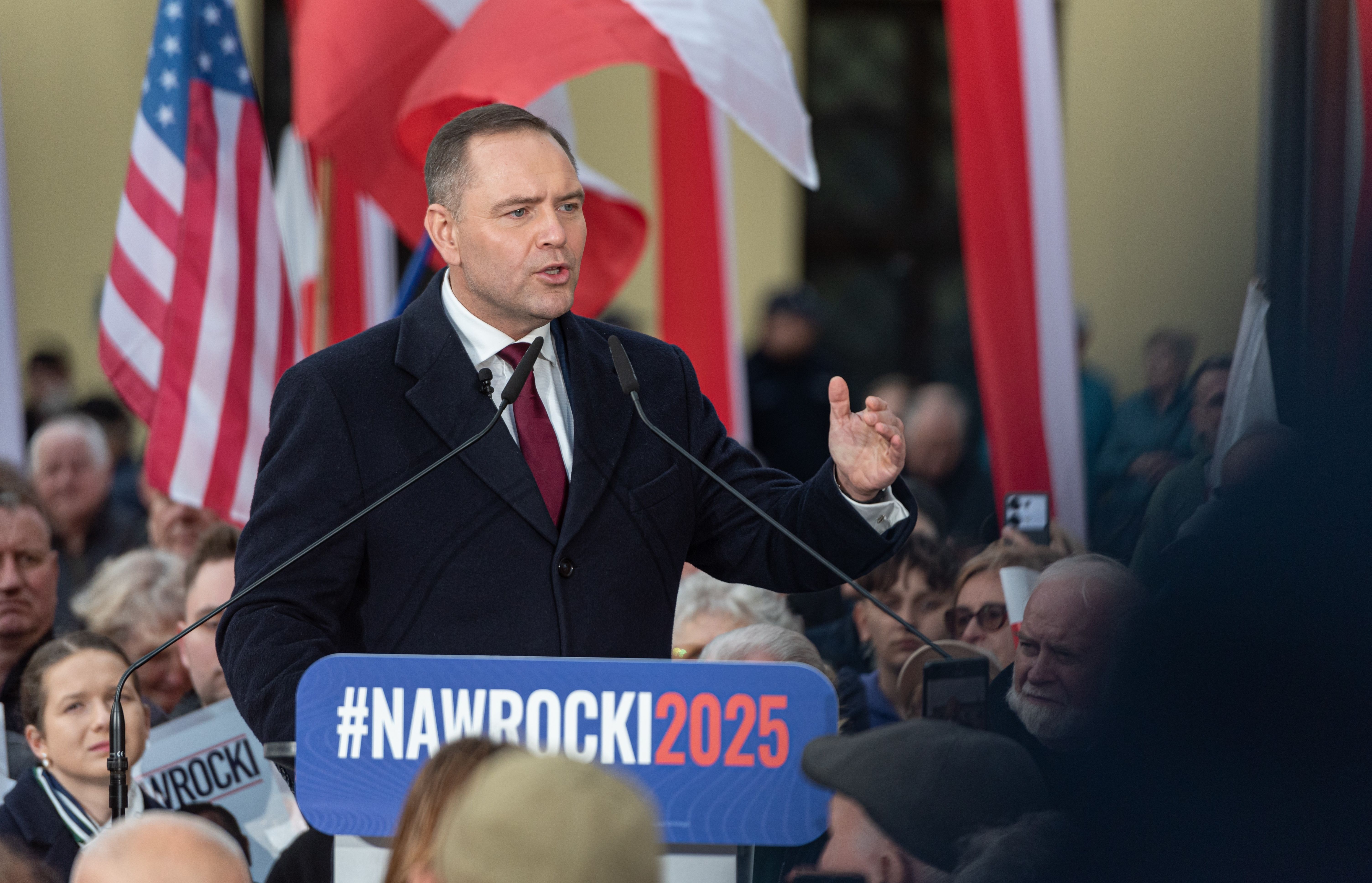In a nail-biter finish to a bitter campaign, a polarized Polish electorate over the weekend chose the Euro-skeptic, populist right candidate, Karol Nawrocki over Rafal Trzaskowski, the liberal mayor of Warsaw.
This contest, with close parallels to the recent one in Romania, produced an unanticipated triumph for Nawrocki, who, like George Simian, his Romanian counterpart, aligned himself with the MAGA agenda of President Trump. At a CPAC meeting held in Poland in the lead-up to Poland’s runoff, Secretary of Homeland Security Kristi Noem’s endorsement of Nawrocki was applauded by populist nationalist leaders from across Europe.
The official results showed Nawrocki with 50.89% and Trzaskowski with 49.11%. Turnout of 71.63% was higher than in any presidential contest since Lech Walesa won the office in 1990.
Trouble with Europe and Ukraine
Trzaskowski was the candidate of Prime Minister Donald Tusk’s pro-EU, pro-Ukraine Civic Coalition (KO), and his victory would have lifted the limits posed on Tusk’s domestic policy agenda by the veto power of outgoing President Andrej Duda, who, like Nawrocki, comes from the nationalist Law and Justice Party (PiS). Tusk’s government has become unpopular in part because it has underperformed on the promises it made to liberal voters in its impressive ouster of PiS after eight years in power in 2023.
Trzaskowski’s campaign unearthed several scandals about Nawrocki’s former involvement in brawls between rival soccer teams, his career as a boxer with alleged underworld contacts, and his allegedly having swindled a pensioner in the sale of an apartment. None of these scandals seems to have discouraged his supporters. He went into the campaign as a virtual unknown, having been the head of the Institute of National Remembrance and director of the WWII museum in Gdansk.
Since returning to power in 2023, Tusk has restored Poland’s position in the European Union, unlocking EU funding that had been withheld because of the clash between PiS in power from 2015 to 2023. There is a prospect of renewed friction with President Nawrocki obstructing Tusk’s pro-EU policies.
The potential resumption of the conflict with Brussels over PiS-era judicial appointments could affect Poland’s enhanced stature and clout within the EU on matters of foreign and security policy. Since Tusk’s election, the so-called Weimar Group of France, Germany and Poland has become a sort of foreign and security policy caucus among EU member states, and, with the UK, this group has spearheaded the Europeans’ drive to stay the course in military support for Ukraine, even as the U.S. under Trump has pressed for negotiations to begin in earnest to end the war.
Nawrocki pledged during the runoff campaign to oppose NATO membership for Ukraine and is certainly very cool on the idea of Ukraine’s EU accession, in part because of the impact on Poland’s farmers. While he is no friend of Russia, Nawrocki, a conservative historian, shares with much of the PiS rank and file some grievances against Ukraine for the treatment of the Polish minority in western Ukraine during WWII. Nawrocki shares with other nationalist-populist politicians in Europe the opposition to admitting asylum seekers and migrants, a position that even Tusk has had to accommodate. But unlike Poland’s liberals, Nawrocki’s voters are unhappy with the obligation to support large numbers of Ukrainian refugees.
Nawrocki owes his victory in part to the voters who supported the right-wing libertarian-nationalist candidate from the Konfederacja party, Slavomir Mentzen, who finished a strong third behind Trzaskowski and Nawrocki in the first round. The lion’s share of Mentzen’s voters supported Nawrocki in the runoff.
What lies ahead?
So long as Tusk remains prime minister, the European Commission is unlikely to move abruptly into open hostility with Poland, in part because the actual performance of Nawrocki in office remains to be seen. The Polish president’s powers are not comparable to the those of the other two nationalist populist leaders in Central Europe, Viktor Orban and Robert Fico.
Unlike Orban or Fico, Nawrocki will back harsher EU sanctions on Russia and will support boosting Poland’s already high defense spending to meet a perceived Russian threat. Like Tusk, however, Nawrocki opposes deploying Polish troops in any capacity in post-war Ukraine. Nawrocki is likely, however, to be even more determined than Duda was to veto legislation to roll back the PiS-era judicial reforms or to relax restrictions on abortion.
It is possible that Nawrocki will try to produce a legislative deadlock that forces early elections by splitting the multiparty majority led by Tusk. New elections are set for 2027 but could come earlier if the governing coalition were dissolved. Nawrocki is much more combative and ideological than Duda has been and can be expected to press his advantage to bring PiS back to power as soon as is feasible.
















